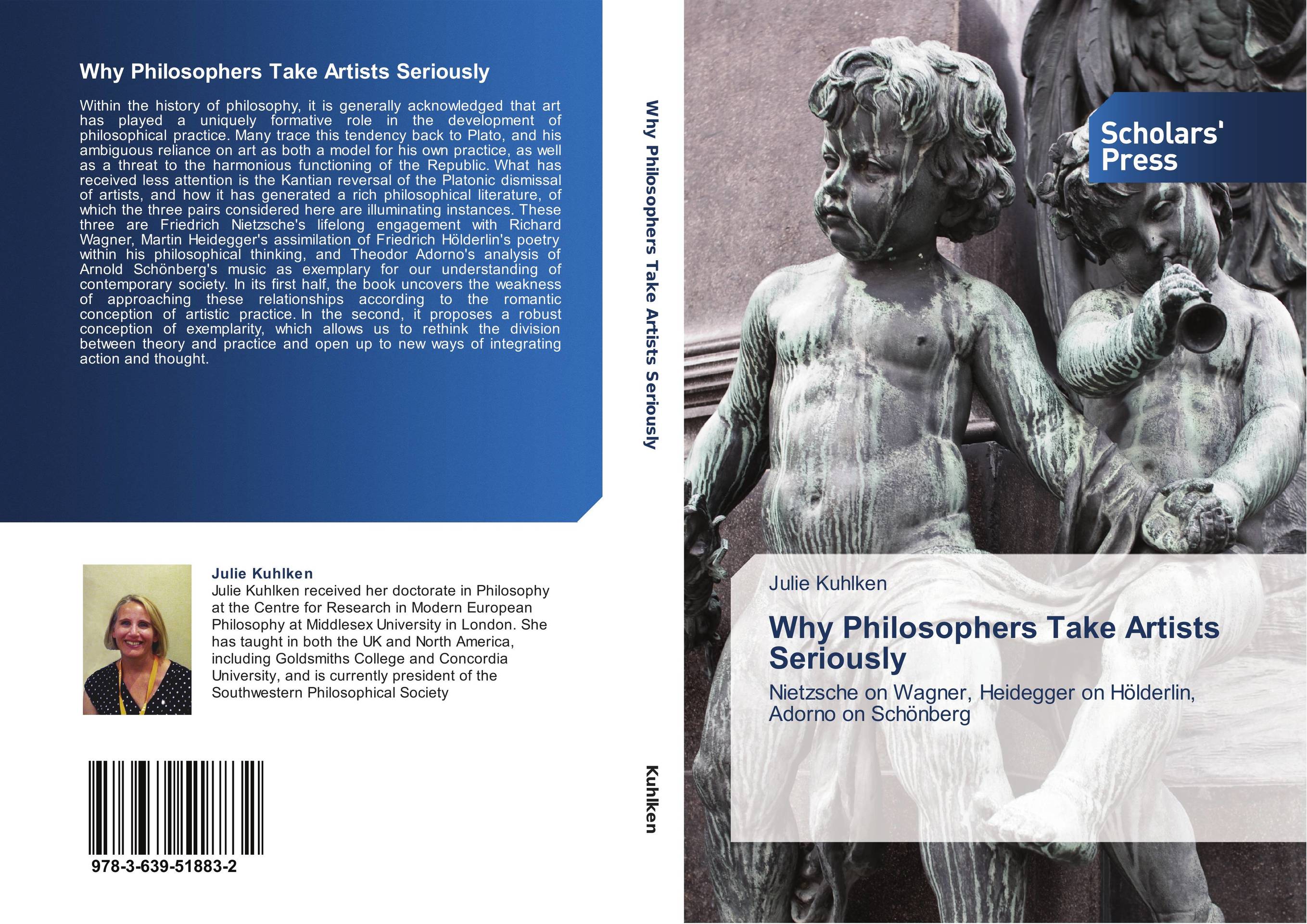| Поиск по каталогу |
|
(строгое соответствие)
|
- Профессиональная
- Научно-популярная
- Художественная
- Публицистика
- Детская
- Искусство
- Хобби, семья, дом
- Спорт
- Путеводители
- Блокноты, тетради, открытки
Why Philosophers Take Artists Seriously. Nietzsche on Wagner, Heidegger on H?lderlin, Adorno on Sch?nberg

В наличии
| Местонахождение: Алматы | Состояние экземпляра: новый |

Бумажная
версия
версия
Автор: Julie Kuhlken
ISBN: 9783639518832
Год издания: 2013
Формат книги: 60×90/16 (145×215 мм)
Количество страниц: 252
Издательство: Scholars' Press
Цена: 39224 тг
Положить в корзину
| Способы доставки в город Алматы * комплектация (срок до отгрузки) не более 2 рабочих дней |
| Самовывоз из города Алматы (пункты самовывоза партнёра CDEK) |
| Курьерская доставка CDEK из города Москва |
| Доставка Почтой России из города Москва |
Аннотация: Within the history of philosophy, it is generally acknowledged that art has played a uniquely formative role in the development of philosophical practice. Many trace this tendency back to Plato, and his ambiguous reliance on art as both a model for his own practice, as well as a threat to the harmonious functioning of the Republic. What has received less attention is the Kantian reversal of the Platonic dismissal of artists, and how it has generated a rich philosophical literature, of which the three pairs considered here are illuminating instances. These three are Friedrich Nietzsche's lifelong engagement with Richard Wagner, Martin Heidegger's assimilation of Friedrich H?lderlin's poetry within his philosophical thinking, and Theodor Adorno's analysis of Arnold Sch?nberg's music as exemplary for our understanding of contemporary society. In its first half, the book uncovers the weakness of approaching these relationships according to the romantic conception of artistic practice. In the second, it proposes a robust conception of exemplarity, which allows us to rethink the division between theory and practice and open up to new ways of integrating action and thought.
Ключевые слова: Nietzsche, Heidegger, Music, Aesthetics, Poetry, irony, Adorno, Exemplarity, Tragedy, Seriousness



